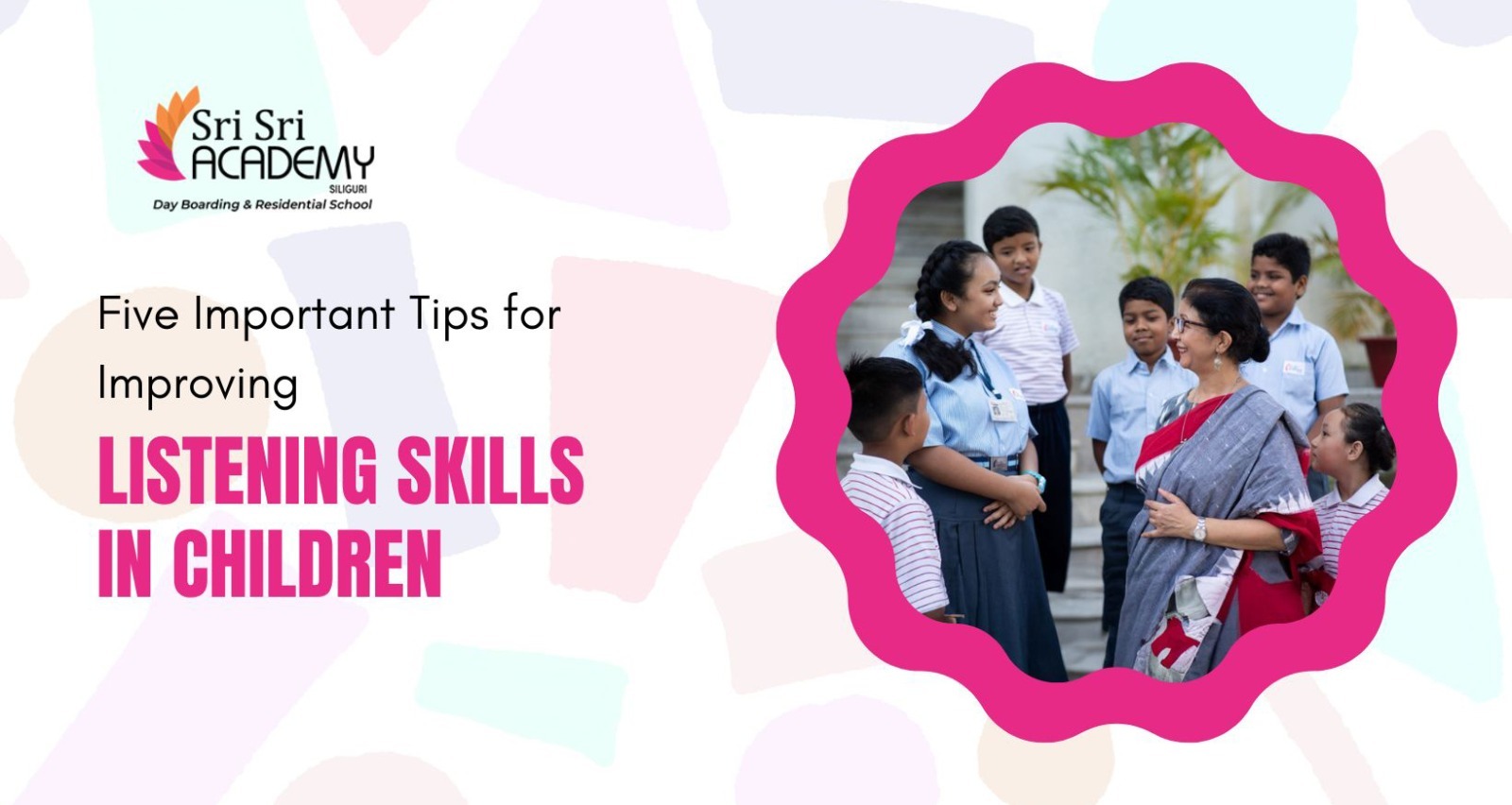
How Boarding Schools in West Bengal Foster Independence in Students?
Active Listening is an important skill and a necessary component of learning at top CBSE schools in Siliguri. The capacity of a student to effectively listen impacts the improvement of communication skills required both inside and outside the classroom.
Active listening like problem-solving, leadership, and teamwork, is a critical “soft skill” that students today must master. It is a talent that must be gained and developed at a very early stage of a child’s development — yet mastering this skill requires time and patience.
What Exactly is Active Listening?
Giving your whole attention to the speaker and trying to absorb the entire content delivered to you is what active listening entails. Active listeners exhibit both verbal and nonverbal indicators of listening.
In a nutshell, the vocal characteristics of an engaged listener include positive reinforcement, remembering, and questioning the speaker. Nonverbal cues, on the other hand, include smiling, head nodding, posture and avoiding any distractions.
Active listening also includes facilitating pleasant and healthy dialogues. Simply said, this entails appreciating the speaker’s point of view and being able to echo back what was stated in your own words.
Why Is Active Listening Essential?
Active listening skills at the top CBSE schools in Siliguri provide more benefits than you would realize. Aside from improved understanding in the classroom, engaged listeners are excellent orators and problem solvers. Being an engaged listener also makes them a person of excellent character and devotion, all of which are vital attributes of an extraordinary leader.
The following are some of the advantages of being an engaged listener:
There are two kinds of listening: active listening and passive listening. The table below will help you comprehend the distinctions between them.

5 Tips for Improving Children’s Listening Skills Keep Eye Contact
People who keep eye contact are seen as trustworthy, friendly, gregarious, open and confident. Additionally, focusing on the speaker’s eyes improves the listener’s concentration. Because eyes convey in addition to words, you can completely comprehend what the speaker is saying.
Avoid Interruptions
It is best to wait for the speaker to finish their message before responding. Interrupting someone before they complete their phrase is impolite. Instead of guessing or presuming, inquire if it’s ok to pose a question.
Pose Questions
Asking specific questions regarding what is being said is one method to demonstrate that you are actively listening (and ensuring that you are hearing accurately). This clarifies, imparts better knowledge and demonstrates that you are actively listening as opposed to passively listening.
Repeat What the Speaker Says
Repeat what was said by the speaker in your own words. This guarantees you comprehend what he or she has to say. You can start by saying, “Correct me if I’m wrong but is this what you meant when you said…….”
Look For the Overall Message
Any message has two components: the message’s content and the underlying sentiment. Both sections are significant and contribute to the message’s overall meaning. For best comprehension, keep an eye on both the content and the underlying emotions. The true message is sometimes found in the feeling rather than the information.
Practicing these five actions with your children can help them develop their listening skills.
Final Words of Wisdom
As one of the top CBSE schools in Siliguri, nothing works better than being a positive role model for your children, whether in the classroom or at home. Parents and instructors may instill strong listening skills in their children by being active listeners themselves. By modeling active listening to your child, they will understand the value and significance of being an active listener.

